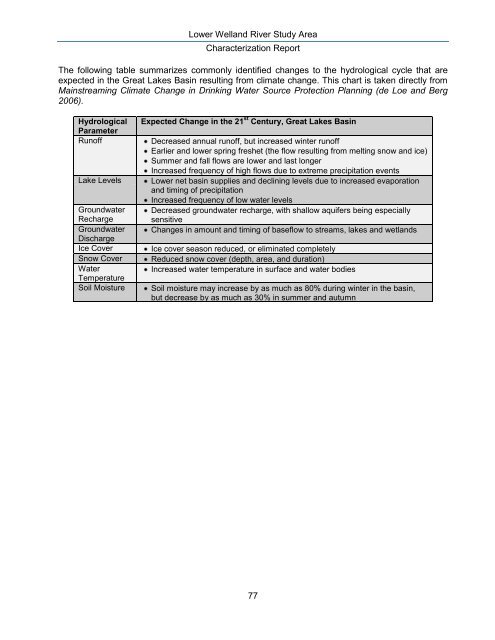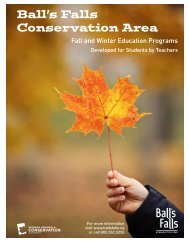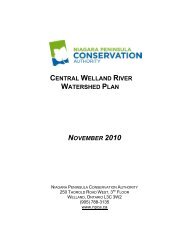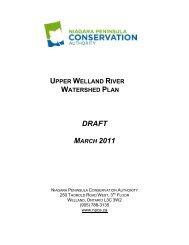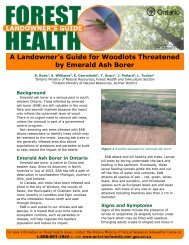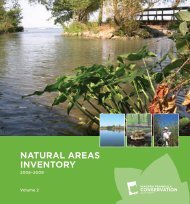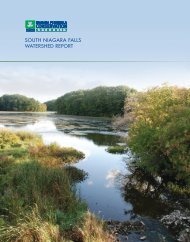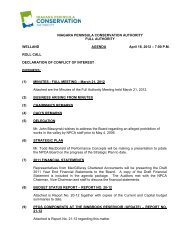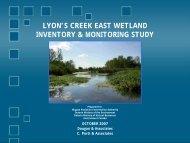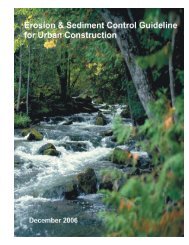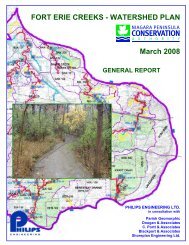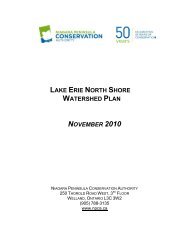Lower Welland River Characterization Report - Niagara Peninsula ...
Lower Welland River Characterization Report - Niagara Peninsula ...
Lower Welland River Characterization Report - Niagara Peninsula ...
You also want an ePaper? Increase the reach of your titles
YUMPU automatically turns print PDFs into web optimized ePapers that Google loves.
<strong>Lower</strong> <strong>Welland</strong> <strong>River</strong> Study Area<br />
<strong>Characterization</strong> <strong>Report</strong><br />
The following table summarizes commonly identified changes to the hydrological cycle that are<br />
expected in the Great Lakes Basin resulting from climate change. This chart is taken directly from<br />
Mainstreaming Climate Change in Drinking Water Source Protection Planning (de Loe and Berg<br />
2006).<br />
Hydrological<br />
Parameter<br />
Runoff<br />
Lake Levels<br />
Groundwater<br />
Recharge<br />
Groundwater<br />
Discharge<br />
Ice Cover<br />
Snow Cover<br />
Water<br />
Temperature<br />
Soil Moisture<br />
Expected Change in the 21 st Century, Great Lakes Basin<br />
Decreased annual runoff, but increased winter runoff<br />
Earlier and lower spring freshet (the flow resulting from melting snow and ice)<br />
Summer and fall flows are lower and last longer<br />
Increased frequency of high flows due to extreme precipitation events<br />
<strong>Lower</strong> net basin supplies and declining levels due to increased evaporation<br />
and timing of precipitation<br />
Increased frequency of low water levels<br />
Decreased groundwater recharge, with shallow aquifers being especially<br />
sensitive<br />
Changes in amount and timing of baseflow to streams, lakes and wetlands<br />
Ice cover season reduced, or eliminated completely<br />
Reduced snow cover (depth, area, and duration)<br />
Increased water temperature in surface and water bodies<br />
Soil moisture may increase by as much as 80% during winter in the basin,<br />
but decrease by as much as 30% in summer and autumn<br />
77


